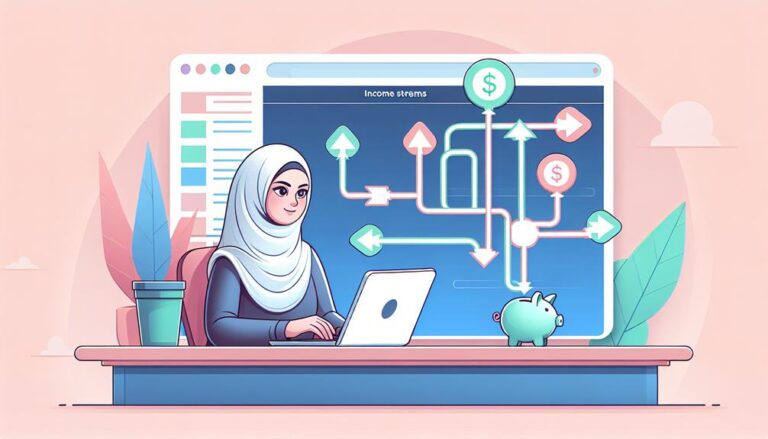High Vs. Regular Affiliate Marketing: Key Differences
Did you know that affiliate marketing contributes to over 16% of all online orders? You can’t ignore that figure, especially considering the leap from regular to high-ticket affiliate marketing.
As you navigate the vast world of digital sales, understanding the nuances between these two can significantly impact your revenue stream.
High-ticket affiliate marketing offers larger commissions but demands a nuanced approach compared to its more widespread counterpart.
You’re likely wondering about the strategies that differentiate the two and how you can tailor your efforts to maximize returns. Stick around, and you’ll uncover the key elements that could transform your approach to affiliate marketing.
Key Takeaways
- High-ticket affiliate marketing involves higher upfront costs but offers excellent commission rates and ROI potential.
- Regular affiliate marketing focuses on volume, leveraging platforms like Google Ads for broader reach and sales maximization.
- Success in both realms requires understanding target audiences and commission structures to align strategies effectively.
- Establishing credibility and authority is crucial, with high-ticket marketing demanding more profound niche knowledge and trust-building efforts.
Defining High Ticket Marketing

High Ticket Marketing lets you dive into a world where selling just a few expensive items can significantly boost your income, focusing on quality over quantity.
This strategy isn’t just about pushing products; it’s about understanding the psyche of high-income groups and niche markets, offering them something that meets and exceeds their expectations.
You’re not just earning more per sale with higher commission rates; you’re tapping into a revenue potential that’s vast and largely untapped.
To thrive in High Ticket Marketing, you must establish yourself as an authority who exudes trustworthiness. It’s not merely about the products you’re selling but the confidence you instill in your affluent target audience.
They’re looking for value, and your ability to communicate that through channels like Google Ads, Facebook Ads, and TikTok Ads can set you apart.
Regular Affiliate Marketing Basics
You’re stepping into the world of regular affiliate marketing, where understanding the commission structure, selecting the right affiliate programs, and employing effective marketing strategies are your keys to success.
It’s your opportunity to partner with businesses in industries like e-commerce and fashion, using your unique links to track and boost your earnings through referrals.
Let’s unlock the potential of regular affiliate marketing together, focusing on these crucial points to maximize your revenue and growth.
Earning Commission Structure
Understanding the commission structure is crucial as it directly impacts your earnings from regular affiliate marketing. You’re in the game to amplify your financial power, and knowing how commissions work gives you that edge.
In regular affiliate marketing, commissions are your reward for successful sales through affiliate links. This system is transparent; you see exactly what your promotional efforts turn into in terms of cold, hard cash.
Whether a fixed rate or tiered commission system, your earning commission structure in regular affiliate marketing is designed to reward your hustle.
Align your strategy with the commission structures available, and leverage every sale to maximize your earnings. Remember, every link you share is a potential goldmine. Tap into it.
Affiliate Program Selection
Choosing the right affiliate program is your first step toward success in the competitive world of regular affiliate marketing.
You can select products or services that align with your niche and appeal directly to your target audience. This precision in affiliate program selection is critical to maximizing your earnings.
Here are three critical factors to consider:
- Commission Structures: Look for programs that offer competitive rates and favorable terms.
- Promotional Materials: High-converting affiliate programs provide quality resources to help you promote effectively.
- Niche and Target Audience Alignment: The products or services you promote must resonate with your audience for optimal results.
Marketing Strategies Employed
To kickstart your journey in regular affiliate marketing, let’s dive into the most effective marketing strategies to boost your commissions and grow your audience.
Embrace the digital marketing world by joining affiliate marketing programs that align with your strengths.
As affiliate marketers, you aim to create powerful partnerships targeting specific audiences, ensuring your content resonates and compels action.
Regular affiliate marketing isn’t just about pushing products; it’s about strategically expanding your reach into new markets and maximizing online sales through a focused marketing strategy. By leveraging these partnerships, you’ll tap into new audiences and establish a presence that commands attention.
Earning Potential Compared
You can significantly boost your earnings by opting for high-ticket affiliate marketing, as it offers the chance to earn higher commissions per sale than regular affiliate marketing.
Imagine leveraging your efforts to target high-income groups or niche markets, where each sale packs a financial punch far beyond what you’d typically expect from promoting lower-priced products.
This is where the true power of high ticket affiliate marketing shines, offering you a path to greater earnings without the need for an overwhelming sales volume.
Consider these key points:
- High-ticket affiliate marketing targets products and services with higher prices and, by extension, higher commission rates. This approach focuses on quality over quantity, ensuring each sale brings a significant reward.
- Regular affiliate marketing often promotes lower-priced products with correspondingly lower commission rates. You’d need to push a much larger sales volume to match the earning potential of high ticket offers, which can be challenging and time-consuming.
- Focusing on niche markets with high ticket offers allows for a tailored marketing strategy that speaks directly to the needs and desires of high-income groups, amplifying your chances for success and bolstering your earning potential.
Harness the power of high-ticket affiliate marketing to transform your earnings and achieve the financial success you strive for.
Required Investment Differences

You’re about to discover how the initial financial outlay, ongoing expenses, and ROI potential stack up in high versus regular affiliate marketing.
Knowing these differences will empower you to make informed decisions that align with your goals and budget.
Let’s explore these critical points to maximize your success in the dynamic world of affiliate marketing.
Initial Financial Outlay
Diving into the affiliate marketing world, it’s crucial to understand that high-ticket programs demand a more substantial initial investment, setting the stage for potentially greater rewards. Here’s what you need to grasp:
- High-ticket affiliate marketing requires a higher initial financial outlay due to the promotion of premium products for a specific target audience.
- Regular affiliate marketing presents lower barriers to entry, focusing on lower-priced products with lower profit margins, thus requiring less upfront investment.
- The choice between higher commissions from high ticket sales versus higher income potential with lower investment in regular affiliate marketing shapes your strategy.
You’re in command. Each path offers distinct advantages tailored to how much you’re willing to invest upfront. The power lies in understanding these differences and aligning them with your ambitions.
Ongoing Expenses Analysis
Having explored the initial financial commitment required for different affiliate marketing paths, let’s examine the ongoing expenses shaping your journey toward success.
High-ticket affiliate marketing demands more from you in terms of ongoing expenses. You’re targeting high-value sales within niche markets, which means investing in specialized content creation and precise marketing strategies.
This pathway is for those who desire power through higher commissions from fewer yet lucrative sales.
Conversely, regular affiliate marketing caters to a broader audience, focusing on lower-priced products. Your ongoing expenses are generally lower, as you’re promoting a variety of products without the need for as tailored a strategy.
Remember, choosing high ticket and regular affiliate marketing isn’t just about initial outlay. It’s about aligning your ongoing investment with your ambition for supremacy in the affiliate marketing world.
ROI Potential Comparison
While high-ticket affiliate marketing demands a higher initial investment, it’s crucial to understand that its ROI potential significantly surpasses regular affiliate marketing due to the lucrative commission rates on offer.
You’re stepping into a realm where the bold thrive, where investment differences shape the battlefield of revenue generation.
- Higher Upfront Costs: High ticket affiliate marketing involves steeper initial investments, but remember, more significant risks can lead to greater rewards.
- Commission Rates: The allure of high ticket items lies in their heftier commission rates. Each sale propels your earnings exponentially compared to numerous smaller transactions in regular affiliate marketing.
- Audience Targeting: Tailoring your strategy towards a more affluent audience can streamline your path to a higher return on investment, leveraging the power of selective, impactful marketing.
Embrace the challenge, and let these investment differences guide your conquest for unparalleled ROI potential.
Marketing Strategies Overview

Explore the vast landscape of marketing strategies that can transform your brand’s reach, driving significant growth and unparalleled success.
Dive into high-ticket affiliate marketing, where your focus shifts towards securing a foothold in high-income groups or niche markets.
This isn’t about casting a wide net; it’s about precision, targeting those ready to invest in top-tier products or services, and ensuring your efforts yield top-dollar commissions.
Leverage cutting-edge tools and platforms such as Google Ads, Facebook Ads, and TikTok Ads to catapult your brand into the spotlight.
These channels are your battleground, where creativity and strategy combine to capture the attention of your ideal clientele.
Programs like Augusta Precious Metals exemplify the lucrative potential of high-ticket affiliate marketing, offering commissions that turn heads and providing invaluable client education opportunities.
You’re not just selling; you’re educating, building trust, and carving a niche that positions you as a leader.
It’s time to elevate your game, focusing on marketing strategies that attract and retain a clientele willing to invest in the best. Your path to unparalleled success starts here.
Audience Targeting Variations
Let’s focus on how precisely targeting your audience can amplify your affiliate marketing success.
Whether diving into high-ticket affiliate marketing or sticking with the tried-and-true path of regular affiliate marketing, understanding the nuances of audience targeting is critical to unlocking unparalleled power in your campaigns.
- High Ticket Affiliate Marketing targets high-income individuals or those within specific niche markets looking for premium products. This approach calls for a tailored strategy, leveraging exclusive channels to reach an elite clientele effectively.
- Regular Affiliate Marketing casts a wider net, focusing on a broader audience range. It’s about volume, reaching as many potential customers as possible through diverse channels, from social media to email marketing.
- Strategies and Channels differ significantly between the two. In high-ticket affiliate marketing, you’re likely using more personalized, direct methods to connect with your audience, such as VIP events or high-end social media platforms. On the other hand, regular affiliate marketing utilizes more universal platforms aiming to capture attention across a vast spectrum.
Mastering audience targeting means selecting the right strategies and channels to reach your desired market effectively.
Whether aiming for the exclusive clientele of high-ticket affiliate marketing or the extensive reach of regular affiliate marketing, your success hinges on how well you know your audience and tailor your approach accordingly.
Commission Structures Unveiled

Diving into affiliate marketing, you’ll quickly find that understanding commission structures is critical to maximizing your earnings potential.
With high-ticket affiliate marketing, the allure lies in higher commission rates. You’re not just selling; you’re strategizing to promote expensive products that pack a punch in substantial commission potential.
This path requires fewer sales to accumulate a significant income, making every successful promotion a victory worth celebrating.
In contrast, regular affiliate marketing taps into a wider audience with lower-priced products. Here, the commission rates are lower, but the opportunity to make numerous sales exists.
It’s a volume game where your power lies in reaching as many as possible, turning the lower commission rates into a river of steady income through sheer scale.
To wield the power of affiliate marketing, you must understand these commission structures. High-ticket affiliate marketing offers a path to substantial earnings with fewer sales, targeting those willing to invest in expensive products.
On the other hand, regular affiliate marketing opens the door to a broader audience, relying on volume to build your empire.
Choose your battlefield wisely, for in the nuances of these commission structures lies your potential for significant income.
Success Factors Analysis
Understanding the commission structures lays the groundwork; let’s focus on what truly makes or breaks success in high-ticket affiliate marketing.
You’re in a game where the stakes are high, but so are the rewards. To dominate this space, you need to be strategic. Here’s how:
- Know Your Niche Market, and Audience Needs
- Dive deep into your chosen niche. Understanding the intricate needs of your audience is your first step toward success. High-ticket affiliate marketing thrives on precision targeting. Your goal? To become the go-to source for solutions within your niche.
- Establish Authority and Credibility
- Authority and credibility are your currency. In the realm of high-ticket items, trust is paramount. Implement content creation strategies that emphasize informative content and SEO optimization. This isn’t just about being seen; it’s about being seen as a trusted advisor.
- Leverage Paid Advertising Platforms
- You can’t rely on organic reach alone to drive high ticket sales. Platforms like Google Ads and Facebook Ads are your allies in targeting potential clients precisely and persuasively. Use these tools to amplify your reach and cement your presence in the high-ticket affiliate marketing arena.
Harness these strategies; you’re not just playing the game but setting the rules.
Conclusion
You’re at a crossroads between high ticket and regular affiliate marketing. The former offers a golden path to higher earnings but demands more upfront, both in effort and strategy.
While less daunting, regular affiliate marketing may require a marathon of persistence for substantial gains. Remember, the secret to success in either path isn’t just choosing but committing.
So, ask yourself, are you ready to dive deep or spread wide? Your empire’s foundation starts with this choice. Forge ahead!
Frequently Ask Questions
Q: What is the difference between affiliate marketing and digital marketing?
A: Affiliate marketing focuses on promoting products or services for a commission, while digital marketing encompasses a broader range of online marketing strategies.
Q: How does affiliate marketing differ from MLM?
A: In affiliate marketing, individuals promote products and earn a commission for sales, while MLM involves building a network of distributors who earn through recruitment and sales.
Q: What are the key differences between affiliate marketing and multi-level marketing?
A: The main difference lies in the earning structure – affiliate marketing is performance-based, while MLM involves earning from both sales and recruitment.
Q: What are the advantages of affiliate marketing over traditional marketing?
A: Affiliate marketing allows individuals to earn a commission without creating or selling their own products, offering a low-risk opportunity for passive income.
Q: Can you provide an overview of affiliate marketing?
A: Affiliate marketing is a marketing model where individuals promote products or services through an affiliate network and earn a commission for each sale or lead generated through their referral.
Q: What are some examples of successful affiliate marketing programs?
A: Some well-known affiliate marketing programs include Amazon Associates, ClickBank, and ShareASale, among others.
Q: How can one understand affiliate marketing better?
A: By learning about the basics of affiliate marketing, understanding different affiliate networks, and exploring successful affiliate marketing strategies, individuals can gain a deeper understanding of the concept.
Q: What is the role of an affiliate marketer?
A: An affiliate marketer promotes products or services through various online channels and earns a commission for each successful sale or referral they make.







